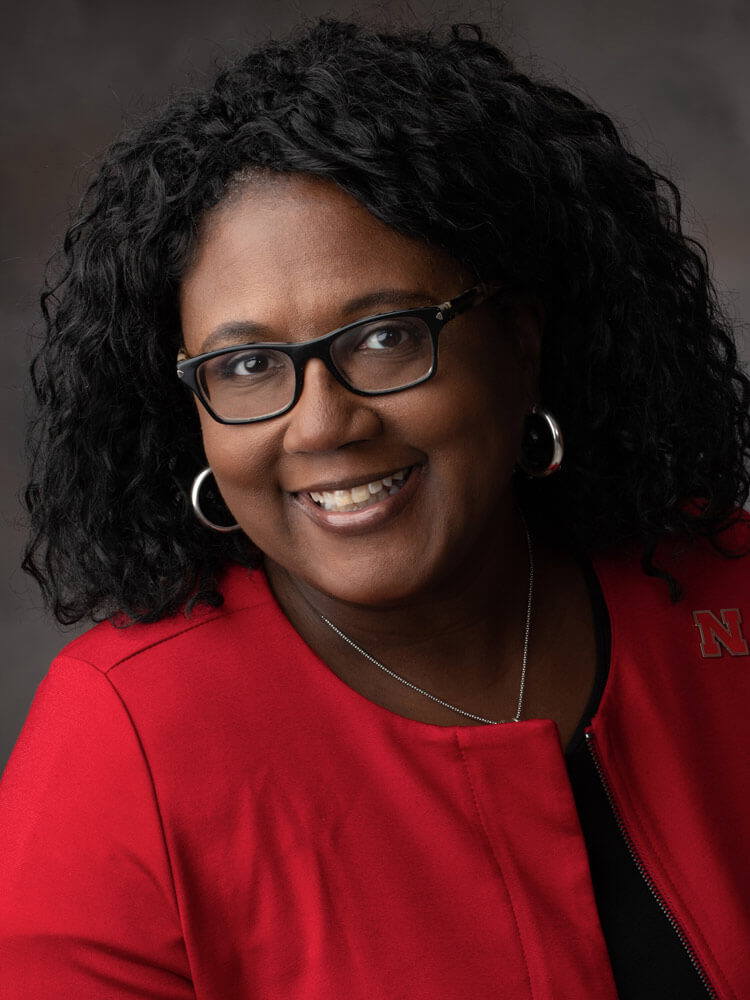Faculty, staff and returning student conversation guides are the foundation of the Husker Dialogue experience. Each guide is responsible for setting the tone for the small group discussion. Responsibilities include:
- Directing the flow of the conversation so that all participants feel heard, respected, and included.
- Asking open ended questions that encourage participants to think beyond their perspective.
- Boosting students' confidence to engage with peers from different backgrounds and encourage students to create a community at UNL.
- Provide participants with a safe space to have difficult conversations.
Steps for becoming a guide:
- Sign up to serve on the Husker Dialogues Website
- Complete Husker Dialogues training by Tuesday, September 6, 2023. Returning guides who have volunteered within the last two years can opt-in or opt-out of the training.
- Attend the Husker Dialogues in-person experience on September 6 and/or the virtual experience on September 13
Last day to sign up to become a guide: Friday, September 1, 2023
Sign Up Now! Explore More Volunteer OpportunitiesBenefits of Being a Conversation Guide
Returning Students
- Volunteering to be a conversation guide is an excellent opportunity for hands-on practice in inclusive excellence.
- It’s a career-building large-scale event that potential employers will notice on resumes. Training is provided, and everyone is welcome.
- Your personal experience and leadership in this event are critical to student success at UNL. First year students need to hear from other students about the importance of inclusive excellence at UNL to continue building a welcoming environment.
Faculty & Staff
- Working in small groups with students at Husker Dialogues offers insight into what first year students are experiencing.
- Guiding these discussions allows you to see the issues from their perspective, which can inform decisions you make as a leader on this campus.
- Serving the campus by championing the importance of authentic conversations around inclusivity is a vital step in developing a more inclusive community.
Experiences like Husker Dialogues are only made possible by the various volunteers that take the time to enrich others with their stories. Not only will you be able to contribute to the conversation, you will also benefit from the interactions with students new to the University looking to find a place to be seen, belong, and be accepted.
We believe that every person and every interaction matters, so your involvement matters, your participation matters, your story matters. You matter!
Sign Up Now!Training Information:
- Returning guides who have volunteered within the last two years can opt-in or opt-out of the training.
- Training will be offered in person and virtually and will include mock dialogue conversations.
- Last day to sign up to become a guide: Friday, September 1, 2023. Last training opportunities will be held the week of August 28-September 6.
You will learn:
- Strategies to engage event participants in reflective conversations surrounding questions that matter to everyone, regardless of one's background or lived experiences.
- How to strengthen their college community, deepen peer understanding and bridge the divide across differences, while supplying approaches for participants to apply what they have learned and or experienced.
Estimated time commitment:
- 1- hour 15 minutes training
- 2-hour Husker Dialogues In-Person Event (September 6 from 630-830PM; Arrive 30-minutes before the event. Event will run 7-830PM)
- 2-hour Husker Dialogues Virtual Event (September 13 from 630-830PM; Arrive 30-minutes before the event. Event will run 7-830PM)
*Additional opportunities throughout the academic year are also available.
I led three groups last year, and in each group, I had students mention that they thought anxiety was something you experience in high school, not as a college student. We had great conversations about mental health, and I was able to provide access to resources on-campus (CAPS) during the discussions, but it also made me aware that I should add those resources on my syllabus and mention them in class. I also became more mindful of the need to discuss mental health openly with students.
Contact Information

Charlie Foster
huskerdialogues@unl.edu